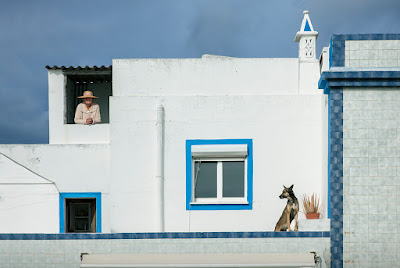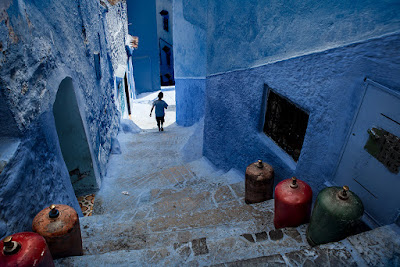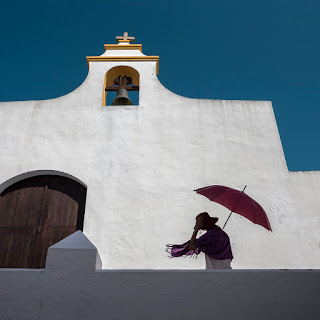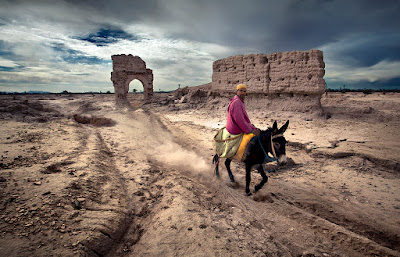Researched by Marco D’Aversa
http://www.streetphotographyintheworld.com/interview-with/interview-alfredo-oliva-delgado/
INTERVIEW WITH ALFREDO OLIVA DELGADO
Born in Seville in 1958. My passion for visual arts began very early in my life. I have always liked painting, film and photography, but I decided to study psychology at the University of my city. I currently work as a professor of Developmental Psychology at the University of Sevilla. Photography is a hobby that I live with great intensity, especially during my holidays and weekends. I could say that photography is a way of life for me. Although I’m an amateur photographer, I often give lectures and workshops about Photography & Psychology.

Going back in time how was your passion for photography born ?
My grandfather was a professional photographer, and my father was an amateur photographer, so I grew up in a context in which photography was always present. Image and art was important to me since my childhood, but during my adolescence I was more interested in painting than in photography. When I was 21 I attended a photography workshop, and after that I bought a second hand photographic enlarger to set a darkroom with some friends.

Considering your works, which ones marked your entrance in the world of real photography?
When I finished my studies in psychology, and I started my academic career in the university I had to work very hard, and had no time for photography. So, for many years I didn’t take a single shot. About seven years ago I bought my first digital camera, and my passion for photography came back again. I think that my first photographic trip to Morocco was a milestone or turning point, and could be considered my entrance in the world of real photography.
How do you manage colour and B&W?
I process with Adobe Camera Raw and Photoshop CS6, both, color and B&W. Sometimes I have used Silver Efex Pro2 to convert colour photos to black and white. It works really well.
Which kind of camera do you use?
My camera is a Canon 6d that has replaced my former Canon 5D MKII that unfortunately passed away last year. Most of my photos were taken with these cameras. I also have a Fuji x100, but I don’t feel comfortable with this camera, and I hardly use it.

What determines if a photo is “good one” or not?
That is a really difficult question. A matter that interests me a lot both as a photographer or psychologist. Why people show so significant differences in their visual or aesthetic preferences? Why do some people like photos that are even disgusting for others? Culture, art and photography education and experience are important factors that influence our preferences. Although, of course there are also innate factors responsible for universal preferences. But getting to the point, for me a good photo should include an intelligent composition and a strong idea and a narrative: It should tells us a story; a story that provokes emotions in the viewers. Maybe that’s the most important point in a good photography. Complexity is also relevant: an image with multiple layers requiring an in-depth reading from the viewer. Those images will remain in our minds for longer than a just funny or pleasant image. Originality must be also considered, and a good shot should avoid cliches. Aesthetic is important in an image to catch our attention, and a beautiful photo could be a very nice image, but a really good photo need something more than just beauty.
When you are shooting, do you have an image in your mind? Do you build the final photo before shooting it or are your images also a result of a post-production phase?
I think the most important and decisive moment is the one in which you take the picture, and the one immediately preceding it. Sometimes I’m looking for a certain picture, and sometimes it is the chance that offers me the picture. I don’t have a single way of working. With regard to processing, I think that you can’t make a photo good by post-production. Obviously you can enhance some aspects (contrast, saturation) which improve the initial shot, but you can’t turn a bad shot into a good photo by post-production. When I started with digital photography I used to process my photos too much, especially landscapes. Now processing is not important to me, and I don’t like overprocessed images. I think that many photographers has followed a similar pattern of change in their way of working.

What training did you follow? Who inspired you?
I could say that I’m a self-taught photographer. I followed some workshops, but mostly I learned what I know from books and photography forums on internet. I’m really interested in the theoretical aspects of photography, so I’m constantly reading about these topics (John Berger, Susan Sontag, Roland Barthes, Minor White, Richard D. Zakia). Some of my favorite readings are those about the relationship between photography and psychology , a subject that is not well known by photographers and that I consider interesting. In fact I teach a seminar on this topic in the university of Seville and usually write about it in my blog.
What was your first camera?
I can’t remember the model but it was a SLR Minolta that I bought when I started working. Before that I had used my father’s camera, that was an old Yashica model with a viewfinder.
What is photography to you? And what should not be instead?
I’m open to different styles and uses of photography, although I’m drawn to poetic images that are ambiguous and suggestive. Anyway, I agree with Michael Freeman when he wrote that photography should be true to the medium. Each medium should explore and exploit what it is good at, and not mimic other art forms, which means having a clear idea of what photography highlights are: the documentary spontaneity of the moment captured, veil, differential focus, motion blur, reflections or shadows. An intense post-production, as we can see today in many pictures on websites such as 1x.com, turn a photo into a graphic design. To me that isn’t photography.

No hay comentarios:
Publicar un comentario